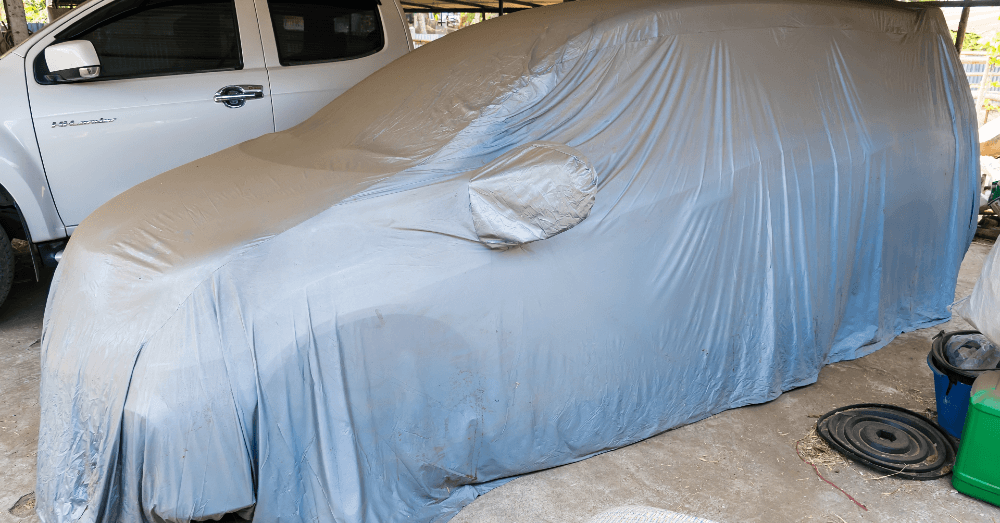Sometimes, you need to store your car long-term, and you should know how to do this. Here are some important steps to take.
Whether you’re in the military and preparing for a deployment or you’re storing a car while away at school, there are some steps you should take to store your car long-term. Cars are meant to be driven, and the fluids and consumable items in your vehicle must be cared for so that they will be drivable after the storage period.
Fill up the gas tank
Although this sounds counterintuitive, filling the gas tank before storage protects the tank from rust. Your gas tank is susceptible to rust from moisture, and the best way to avoid this is to fill it up. This is one time when you should top it off and make sure there isn’t any room for water or air to enter the tank to rust it from the inside. When you fill the tank, it’s a good idea to add a fuel stabilizer that will help prevent rust and corrosion. This fuel will never be used for driving; it’s only in the tank to protect it from rusting while you are away.
Change the oil
Oil that has sat too long can damage a car’s engine and if you need to store your car long-term, you should have fresh, clean oil in the car to ensure the engine components won’t be damaged. If you utilizes synthetic oil for this pre-storage oil change, you won’t have to drain it when you return, but if not, you’ll need to change the oil again when you take the car out of storage.
Keep your cylinders from rusting
You don’t want to have a rusted engine block when you return to your car, and the best way to prevent this is to remove the spark plugs, spray some oil into the cylinders, and replace the plugs. If you can’t do this, have a mechanic do it for you.
Battery maintenance
Sometimes just going on vacation is enough to drain a car’s battery. If you need to store your car long-term, you should have your battery connected to a battery maintainer that will keep the battery fresh and charged while you’re gone. Using this device will ensure the battery is ready to go and will operate at near-full strength when you return.
Protect the windshield and wiper blades
When sitting for a long time, the rubber strip on your wiper blades can get stuck on the windshield glass. You can easily avoid this by placing plastic wrap under each blade to prevent the wiper blades from touching the glass. Alternatives to this are to remove the blades or put the blades in the out position away from the windshield.
Plug the exhaust and intake ports
Your car sucks in air through the intakes and expels exhaust out of the exhaust port. These are openings where critters can climb inside when searching for a bit of shelter during the colder months of the year. One way to prevent rodents and spiders from doing this is to plug the exhaust and intake ports when you need to store your car long-term.
Raise it up
A set of four jack stands will do the trick of raising your vehicle up into the air and off the tires while you’re away. When a car sits on the same spot on the tires for an extended period of time, a permanent flat spot can occur, which would require buying new tires. Avoid this with a set of jack stands that the car can sit on while you’re away.
Clean your car inside and out
It’s time to thoroughly clean your car so that nothing deteriorates while you’re away. If you don’t want to do this yourself, pay for a complete car detailing. When you need to store your car long-term, you don’t want to return to find that a rogue banana peel has become a serious problem in your car. Empty the glove box, clean every nook and cranny, and make sure you clean the exterior just as thoroughly.
Don’t set the parking brake
If you’ve raised the car up on jack stands, you won’t need the parking brake, but if you leave the car sitting on the wheels, you’re better off chocking the wheels instead of using the parking brake. When engaged for a long time, the parking brake surface can fuse with the wheel and become stuck in place.
A tarp and a cover
When you store your car long-term, park on a tarp to catch any vehicle leaks that might occur. This also protects the tires from oils and elements from the ground if you store the car on its tires. Toss a breathable car cover over your car to keep the paint and metal protected from the elements.
Using these tips to store your car long-term can pay off in the long run, ensuring your car is still in good condition and ready to drive when you return and retrieve it.
